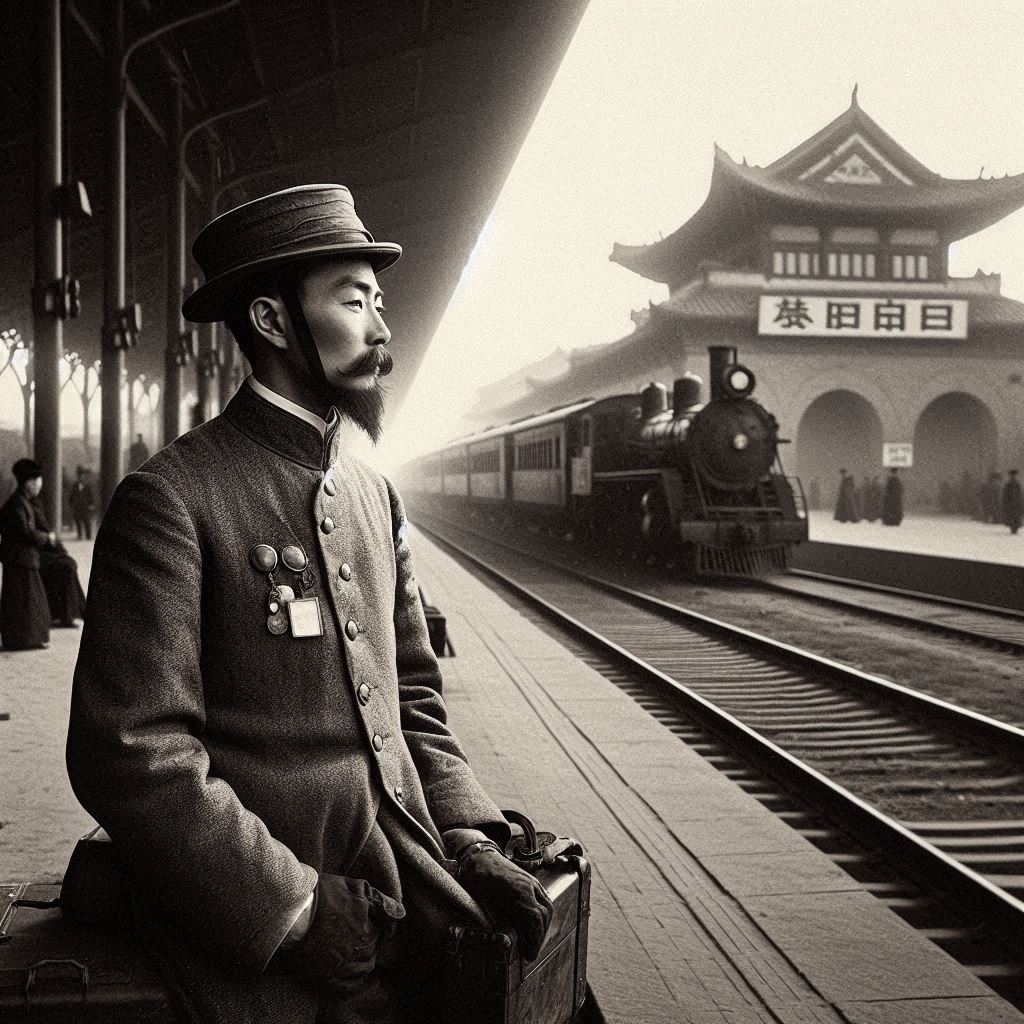韓國電影《哈爾濱》即將上映,伊藤博文刺殺事件再次躍上螢幕
安重根是朝鮮獨立運動的知名人物,生於1879年9月2日,死於1910年3月26日。出生在朝鮮黃海道海州牧的知名文人世家,從小接受儒家教育。隨著日本對朝鮮侵略的加劇,安重根逐漸成為反日運動的積極參與者。他曾多次嘗試通過武裝抵抗來反抗日本的殖民統治。
伊藤博文是日本的政治家和外交家,生於1841年10月16日,死於1909年10月26日。他是日本近代化的主要推動者之一,曾四次擔任日本首相,也是明治憲法的起草者之一。然而,他在亞洲鄰國,尤其是朝鮮,則因推動日本的帝國主義擴張而備受爭議。
1905年,日本通過《乙巳條約》強迫朝鮮成為其保護國,剝奪朝鮮的外交權。伊藤博文作為當時的第一任韓國統監,主導整個侵略計畫。安重根對此深感憤怒,決心通過行動來抗議日本的侵略,並激發朝鮮人民的民族意識。
當時,安重根在火車站提前佈置,等待伊藤博文的到來。1909年10月26日,當日上午9點伊藤博文在哈爾濱火車站下車,準備會見俄國財政大臣科科夫佐夫。安重根用手槍連開3槍,當場將其擊斃,並向伊藤博文身邊的人開4槍。安重根隨即被逮捕,他在行動後並未逃跑,反而高呼朝鮮獨立萬歲,表明自己行動的政治目的。
刺殺事件引起國際社會的廣泛關注。安重根在被捕後接受審判,他在法庭上坦然承認自己是出於愛國心和正義感才進行刺殺的。他在法庭上進行有力的辯護,強調自己是為了反抗日本的侵略,保護朝鮮的獨立和主權。最終,安重根被判處死刑,於1910年3月26日被處以絞刑。
這一事件對朝鮮和日本的關係產生深遠的影響。對於朝鮮人民來說,安重根的行動被視為愛國主義和民族獨立運動的重要象徵,他的勇氣和犧牲精神激勵後來的反日運動者。在韓國現代歷史中,安重根被譽為民族英雄,事蹟被廣泛傳頌,他的墓地也成為人們瞻仰的地方。
對於日本而言,伊藤博文的刺殺事件則成為一個警鐘,顯示被殖民地人民的強烈反抗意識。然而,這並未改變日本的殖民政策,反而在一定程度上加劇日本在朝鮮的鎮壓和控制。此後,加緊對朝鮮的統治,最終於1910年正式吞併朝鮮,開始長達35年的殖民統治。
總體而言,安重根刺殺伊藤博文的事件是一個具有深遠意義的歷史事件,它揭示殖民時代亞洲人民反抗帝國主義壓迫的決心和勇氣。這一事件不僅影響朝鮮和日本的歷史進程,也在一定程度上鼓舞亞洲地區的民族獨立運動。安重根的精神和行動至今仍激勵著許多追求正義和獨立的人們。
Ahn Jung-geun was a notable figure in the Korean independence movement, born on September 2, 1879, and executed on March 26, 1910. He was born into a well-known literary family in Haeju, Hwanghae Province, Korea, and received a Confucian education from a young age. As Japan's aggression towards Korea intensified, Ahn Jung-geun became an active participant in the anti-Japanese movement, attempting multiple times to resist Japanese colonial rule through armed struggle.
Hirobumi Ito was a Japanese politician and diplomat, born on October 16, 1841, and assassinated on October 26, 1909. He was one of the main architects of Japan's modernization, serving as Prime Minister of Japan four times and playing a key role in drafting the Meiji Constitution. However, in neighboring Asian countries, especially Korea, he was controversial for promoting Japan's imperialist expansion.
In 1905, Japan forced Korea to become its protectorate through the Eulsa Treaty, stripping Korea of its diplomatic sovereignty. As the first Resident-General of Korea, Ito Hirobumi led this invasion plan. Ahn Jung-geun was deeply angered by this and resolved to protest Japan's invasion through action, hoping to awaken the national consciousness of the Korean people.
On October 26, 1909, Ahn Jung-geun stationed himself at the Harbin Railway Station in China, anticipating Ito Hirobumi's arrival. At 9 a.m., when Ito Hirobumi alighted from his train to meet with Russian Finance Minister Kokovtsov, Ahn Jung-geun fired three shots from his pistol, killing Ito Hirobumi instantly. He also fired four shots at Ito's entourage. Ahn was immediately arrested; he did not flee but instead loudly proclaimed Korean independence, clearly stating the political purpose of his actions.
The assassination drew significant international attention. After his arrest, Ahn Jung-geun was tried, where he candidly admitted his actions were driven by patriotism and a sense of justice. He defended himself passionately in court, emphasizing that he acted to resist Japanese aggression and protect Korea's independence and sovereignty. Ultimately, Ahn Jung-geun was sentenced to death and executed by hanging on March 26, 1910.
This event had a profound impact on Korean-Japanese relations. For the Korean people, Ahn Jung-geun's actions symbolized patriotism and the struggle for national independence. His courage and sacrifice inspired subsequent anti-Japanese activists. In modern Korean history, Ahn Jung-geun is celebrated as a national hero, and his legacy is widely honored, with his grave becoming a site of reverence.
For Japan, the assassination of Ito Hirobumi served as a stark reminder of the strong resistance from colonized peoples. However, this event did not alter Japan's colonial policies; instead, it intensified Japan's suppression and control over Korea. Following this, Japan tightened its rule and formally annexed Korea in 1910, initiating 35 years of colonial domination.
In summary, Ahn Jung-geun's assassination of Ito Hirobumi is a historically significant event, highlighting the determination and courage of Asian peoples to resist imperialist oppression during the colonial era. This event not only influenced the historical trajectory of Korea and Japan but also inspired nationalist movements across Asia. Ahn Jung-geun's spirit and actions continue to motivate many who pursue justice and independence.



照片:DALLE3
- 1
- 2
- 3
- 4
